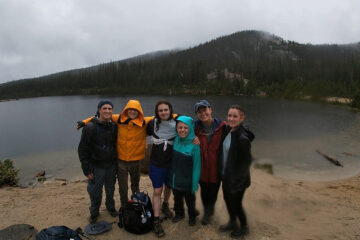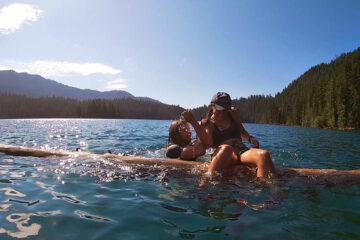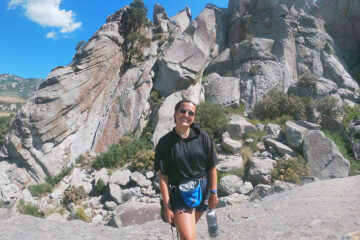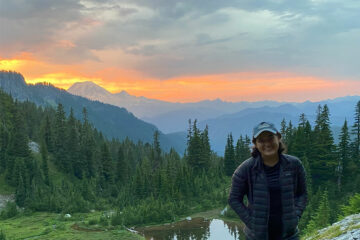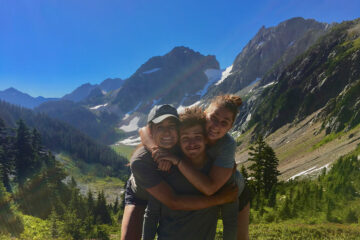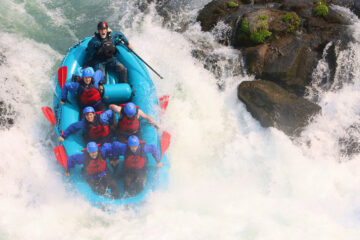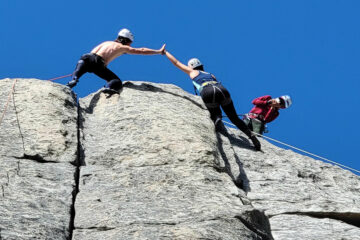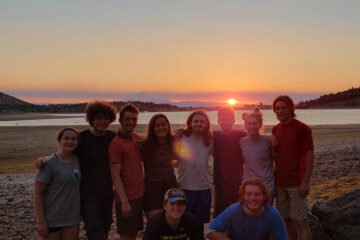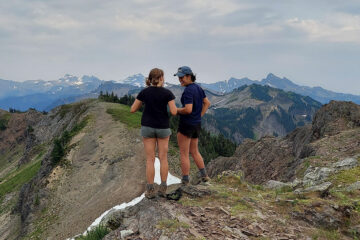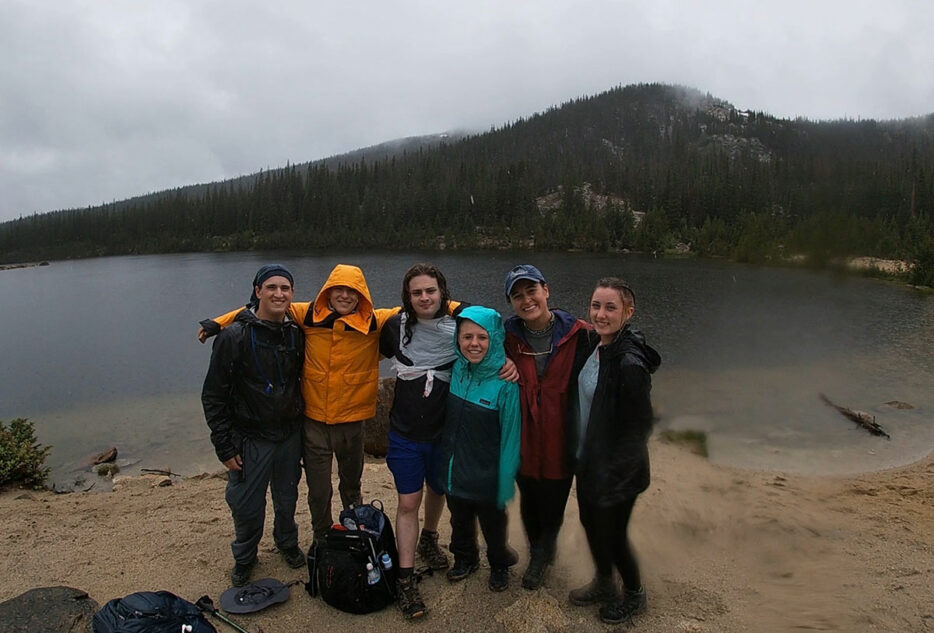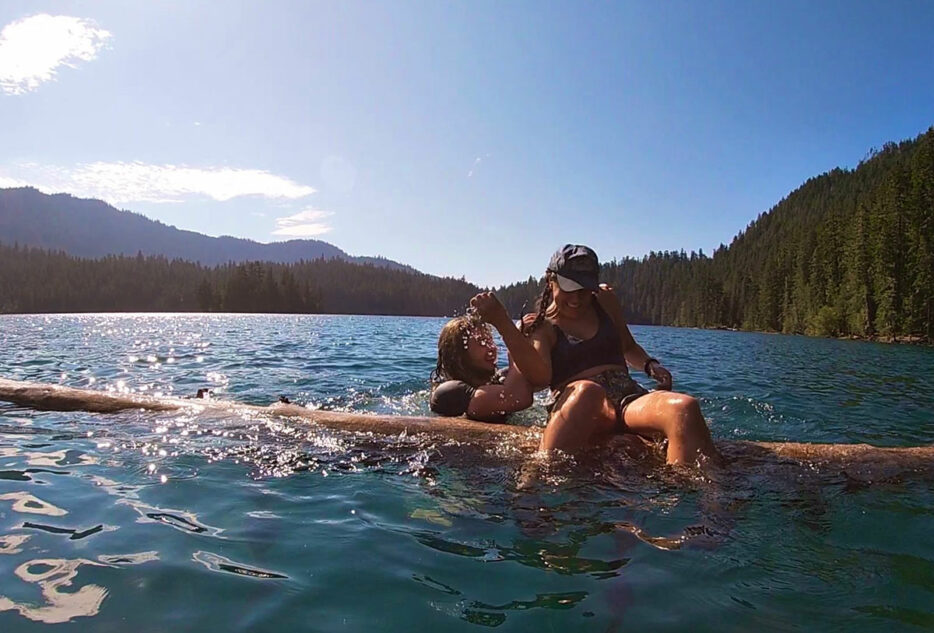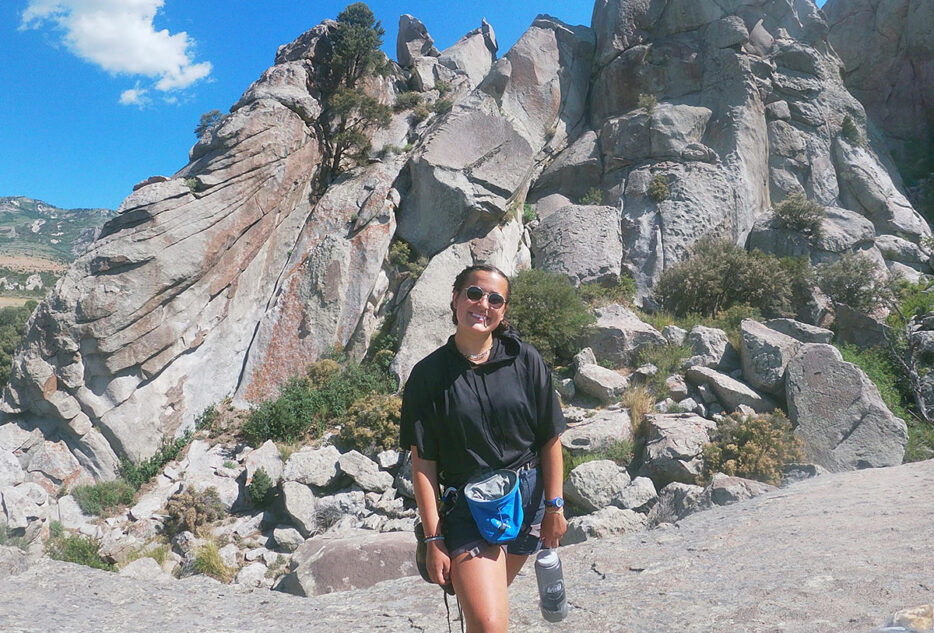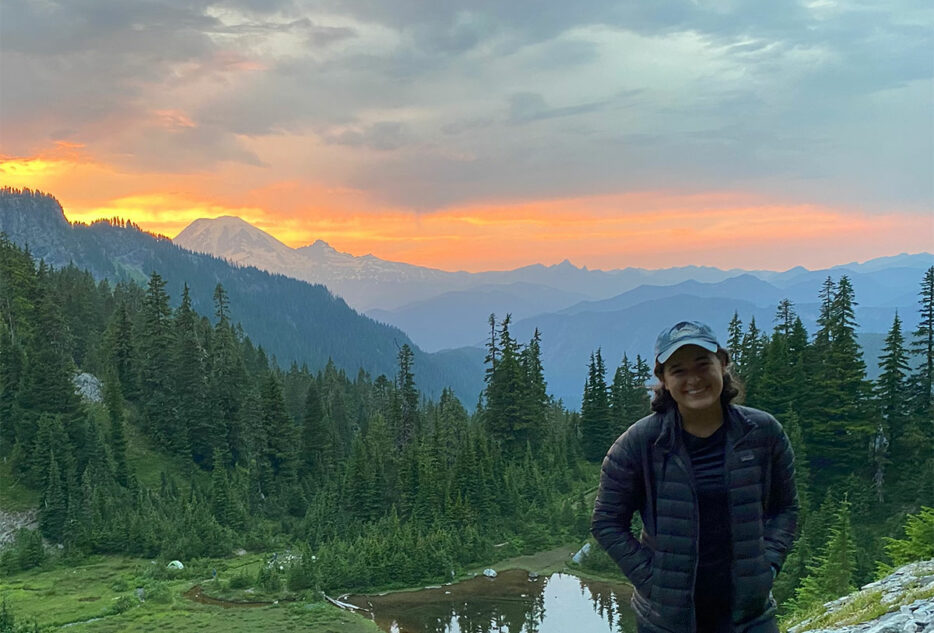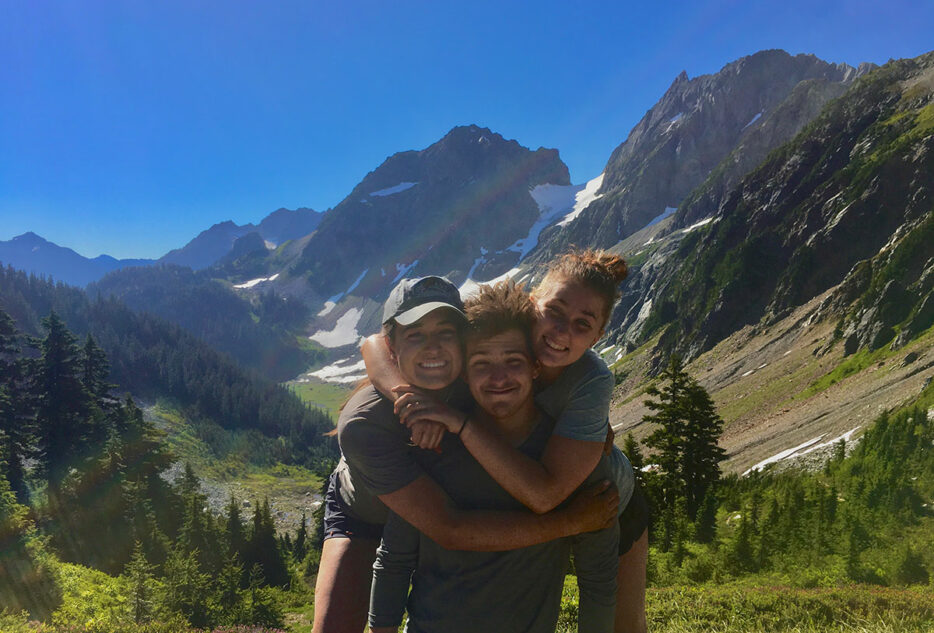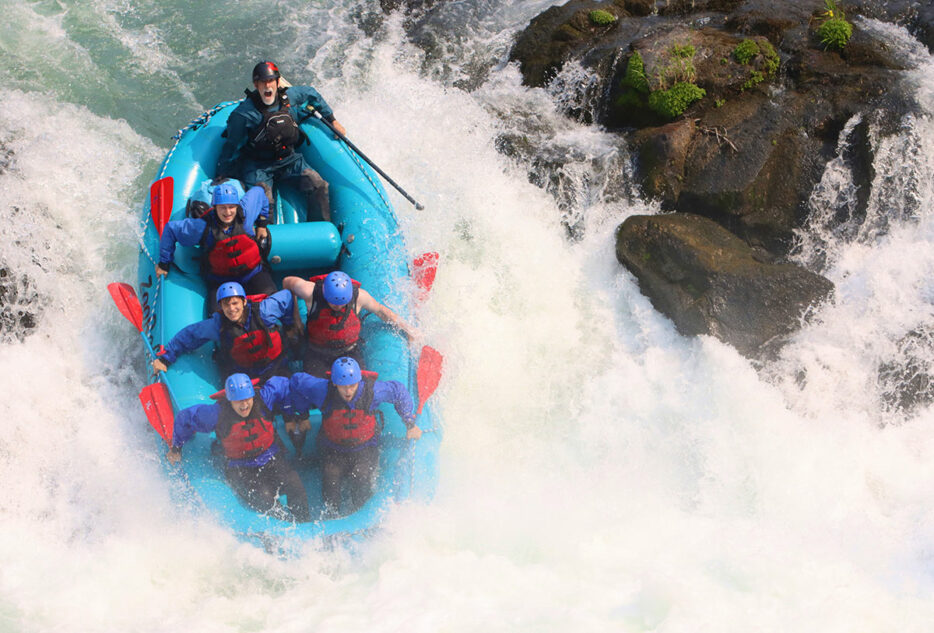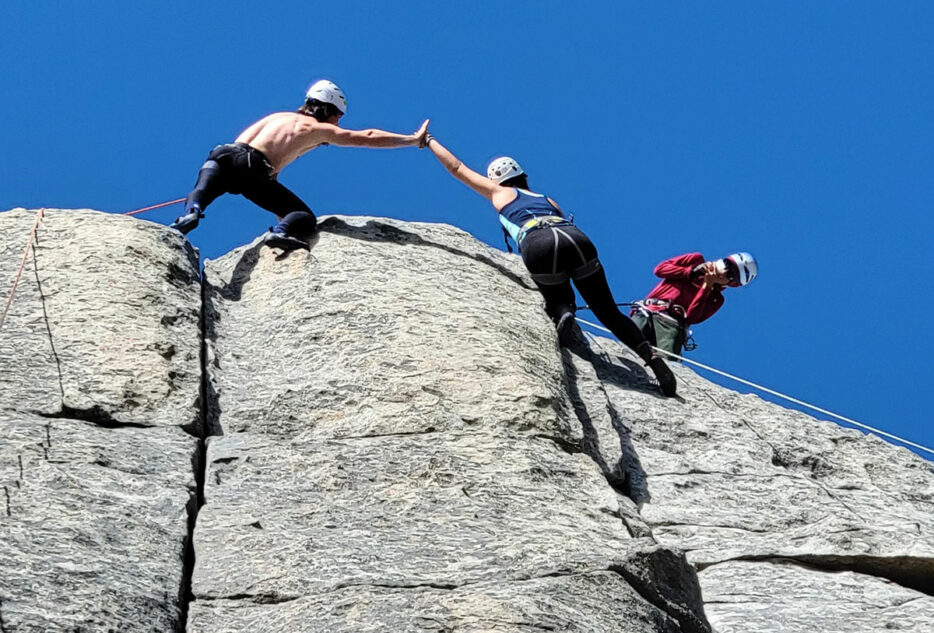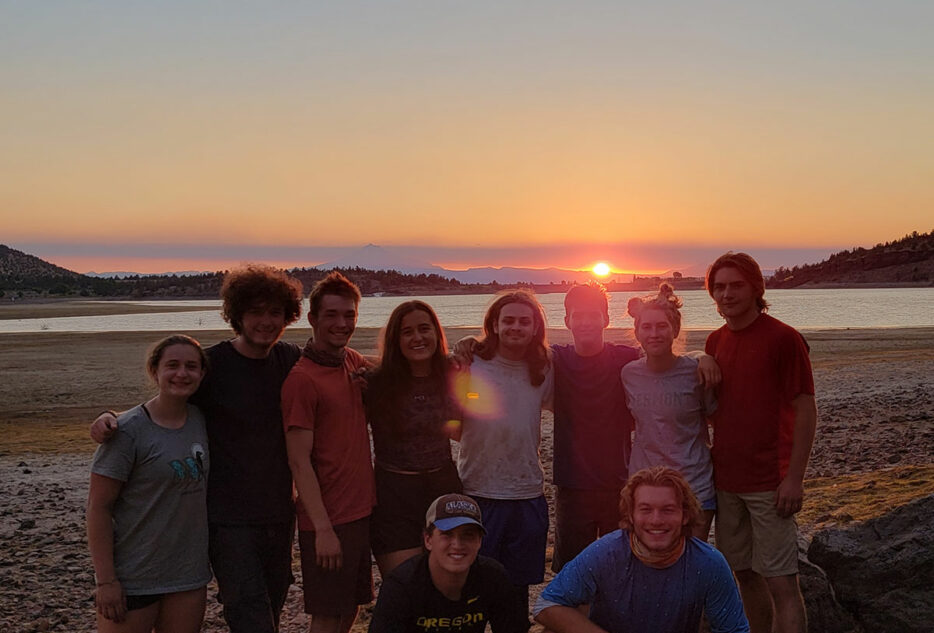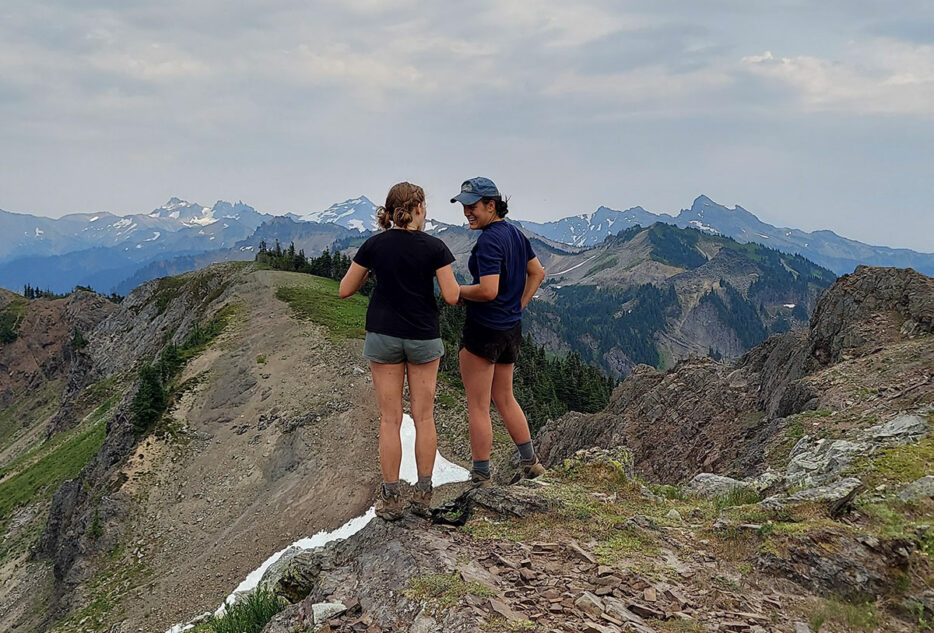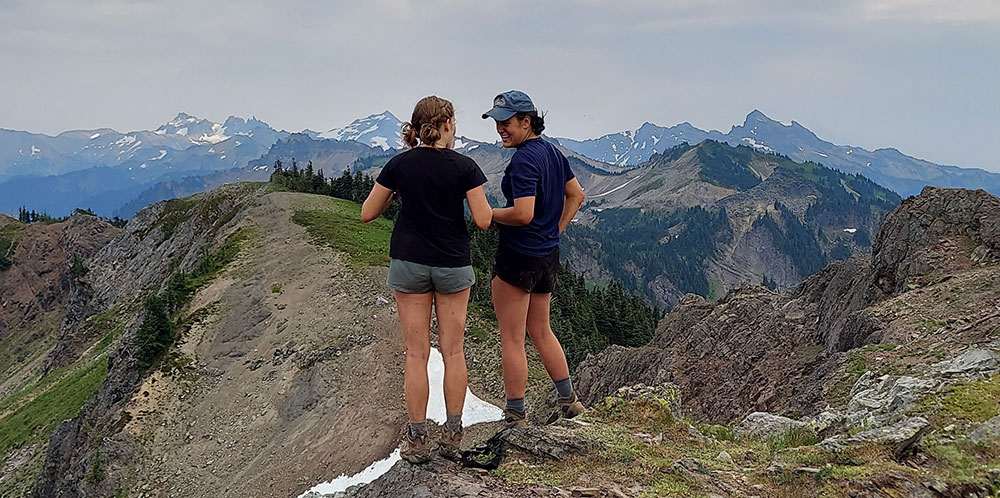
By Katie Stevens, Adventure Treks Leadership Adventure Semester 2021 alum
Our Leadership Adventure Semester students seeking college credit submit an essay as part of their academic requirements. Katie Stevens, who attended our summer 2021 Leadership Adventure Semester in the Pacific Northwest, wanted to share her essay and experience with the Adventure Treks community.
Before this trip, I’d spent a year and a half indoors. I spent countless monotonous days staring at screens until my eyes hurt. Now, after 42 days of authentic, meaningful interpersonal communication and daily challenges that required me to push myself mentally, physically, and even spiritually—I feel like myself again. I was completely grounded and humbled by the sheer majesty and intricacy of the natural world, and now I feel this sense of personal responsibility to treat the Earth with respect and gratitude. I feel so much more connected to other people in general. Without the distraction of technology, I felt like I could communicate with others with an openness and authenticity that I have yet to experience in the “real” world. On top of that, I feel I have learned so many useful skills that have turned me into a capable and confident leader and outdoorswoman.
As much as I want to talk about how I developed an all-consuming passion for rock climbing (I already bought my annual pass to a rock climbing gym near my college campus), or about the theatrics of the wilderness first responder course, or about the river zipline I got to help create during our swiftwater rescue course—I feel like the entire trip served to prepare us for the capstone student-led backpack in the Goat Rocks Wilderness.
I was honored (and a bit terrified) when I found out that our trip leaders (Zach and Chenchen) had chosen me to be one of four designated student leaders for the backpack. I felt reasonably capable with the rescue certifications under my belt and lots of experience backpacking in North Carolina, but after doing some research with my partner, James, we could tell that this trip would have the most difficult and rugged terrain yet. We learned how to read topographic maps and planned a route, taking extensive notes about weather, terrain, and potential evacuation routes once we learned that two students suffered potentially problematic injuries in the days leading up to the trip. We helped plan the meals and calculated the necessary amount of food for the two groups. After shopping, the designated leaders had a lengthy and private conversation about group dynamics, and we chose the people whose strengths and weaknesses seemed to balance out well. Then we gathered all the necessary gear and food, and we sorted appropriate amounts into each student’s backpack.
Once we got on the trail, we noticed that one of our students struggled a considerable amount physically. Despite keeping a steady pace, this person came up to James and myself and mentioned that they weren’t sure if they could make it through the rest of the backpack. This student needed to take frequent breaks, and due to the near unbearable amount of bugs flying around—as well as some severe blisters, and a general desire from the rest of the group to move at a faster pace—I sensed a rift forming in the group. After finding a nice place to rest, James and I tried to use a satellite device to communicate with Zach and Chenchen and potentially come up with a less difficult route or an evacuation plan. Unfortunately, due to permits and logistical difficulties, we told this student that we could evacuate them, but they would have to go home and miss the rest of the trip—or they could finish the backpack per the pre-planned route. The student didn’t want to leave, so they felt a newfound determination to push themself, and James and I committed ourselves to coming up with new strategies to help him get there and keep the group morale up.
To solve this issue, we started to switch up the pace-makers throughout the day, and we kept James or myself in the front and back to make sure we all stayed together. We started to take breaks every hour, so everyone knew when they would take place, and we clipped our water bottles on the front of our pack so we could more easily stay hydrated. We also tried to make the trail conversations more inclusive and engaging. We sang, played games, and engaged in debates to keep our mind off the physical difficulty. These strategies got the student to push themself more than ever before, and they expressed an immense pride they felt.
Aside from the interpersonal challenges, we navigated high winds, light rain, bugs, blisters, sprained ankles, countless fallen trees and other trail obstructions, skree-covered trails with steep drop-offs, and heat with relative ease due to preparation from the rest of the summer. We’d learned how to cook over a gas stove, abide by Leave No Trace principles, how to scope out a good campground, and set up tarps and tents. I cannot wait until I can take some of my friends out on my own backpack here in North Carolina.
I went into this trip with a fair amount of outdoor experience, but I was thrilled to really hone my skills, especially with rock climbing, knot-tying, and navigation. I was a bit surprised by how much I loved my wilderness first responder course. I found it completely fascinating and fun, even though it was similar to a school setting. After some discussions with our instructor, I can see a future career path as a first responder or as an EMT in general. I feel like I saw the most growth in my abilities as a leader. I’m generally a pretty go-along-get-along kind of person, but during this trip, I was forced to make some difficult decisions involving my friends. At one point, I had to put the safety of others and the wellbeing of the group as a whole above need to be liked. I had to have a difficult conversation about a behavior issue, but after the conversation, everyone seemed so much happier and my friend was happy I brought it to their attention. Those kinds of conversations and decisions were the hardest part about being a leader, but I feel much more confident in my ability to navigate those situations now.
I know this essay is a bit long, but I could write entire encyclopedias about all that I took away from Adventure Treks. I am beyond thankful for my summer in the woods, and I know I will carry these memories and lessons with me for a lifetime.
